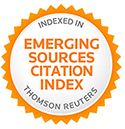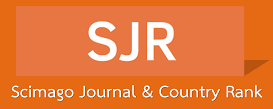Metodologías que orientan las investigaciones sobre procesos de desarrollo e innovación social
Resumen
Se realizó un estudio para identificar las tendencias metodológicas desde las cuales se orientan las investigaciones sobre procesos de desarrollo e innovación social en el período 2020-2024. El método fue mediante enfoque cualitativo y alcance descriptivo, seleccionando 50 artículos en acceso abierto desde la base de datos Scopus. Los hallazgos evidencian que las tendencias del campo se dirigen a estudios cualitativos, seguidos por enfoques mixtos y cuantitativos, cuyo alcance suele ser exploratorio con estudios de caso. Las técnicas de recolección de información más empleadas son entrevistas semiestructuradas, observación participante, cuestionarios e investigaciones documentales. Además, se infiere que en la innovación social con perspectiva del desarrollo es común para estudiar casos en regiones rurales y poblaciones apartadas de cascos urbanos, lo que sugiere la pertinencia de construir metodologías de estudio que profundicen sobre las particularidades de estos territorios.
Recibido: agosto, 2024 / Aceptado: enero, 2025
Palabras clave
Texto completo:
PDFReferencias
ANDION, C.; ALPERSTEDT, G.; GRAEFF, J & L. RONCONI. 2022. “Social innovation ecosystems and sustainability in cities: a study in Florianopolis, Brazil”. Environment, Development and Sustainability, 24: 1.259-1.281. Disponible en: https://link.springer.com/article/10.1007/s10668-021-01496-9.
BAUTISTA-GÓMEZ, M. & L. NIEKERK. 2022. “A social innovation model for equitable access to quality health services for rural populations: a case from Sumapaz, a rural district of Bogota, Colombia”. International Journal for Equity in Health, 21(23). Disponible en: https://equityhealthj.biomedcentral.com/articles/10.1186/s12939-022-01619-2.
BOZIC, A. 2021. “Social innovation in a post-conflict setting: examining external factors affecting social service NGOs”. Development Studies Research, 8(1): 170-180. Disponible en: https://doi.org/10.1080/21665095.2021.1950020.
CANO DE LA CRUZ, Y. 2017. “El rigor científico: una necesidad de las investigaciones en ciencias de la educación”. Mikarimin: Revista Científica Multidisciplinaria, 3(2): 41-50. Disponible en: https://revista.uniandes.edu.ec/ojs/index.php/mikarimin/article/view/414.
CRESPI VALLBONA, M. 2022. “Gobernanza sostenible en los espacios públicos”. Cuadernos de Geografía: Revista Colombiana de Geografía, 31 (1): 164 – 176. Disponible en: https://doi.org/10.15446/rcdg.v31n1.87168.
DALMAIJER, E.; NORD, C & D. ASTLE. 2022. “Statistical power for cluster analysis”. BMC Bioinformatics, 23(205). Disponible en: https://doi.org/10.1186/s12859-022-04675-1.
DEŽE, J.; SUDARIC, T & S. TOLIC. 2023. “Social Innovations for the Achievement of Competitive Agriculture and the Sustainable Development of Peripheral Rural Areas”. Economies, 11(8): 209.Disponible en: https://doi.org/10.3390/economies11080209.
DUQUE-PAZ, L & D. CASTRO-ARROYAVE. 2022. “Identification of social innovation in health criteria in Latin America”. BMJ Open, 12: e063205. Disponible en: 10.1136/bmjopen-2022-063205.
ECHAUBARD, P.; THY, C.; SOKHA, S.; SRUN, S.; NIETO-SÁNCHEZ, C.; GRIETENS, K.; … & J. HII. 2020. “Fostering social innovation and building adaptive capacity for dengue control in Cambodia: a case study”. Infectious Diseases of Poverty, 9(126): 93-104. Disponible en: https://mednexus.org/doi/full/10.1186/s40249-020-00734-y.
FLORES-FERNÁNDEZ, C. y R. AGUILERA-EGUÍA. 2020. “Indicadores bibliométricos y su importancia en la investigación clínica. ¿Por qué conocerlos?”. Revista de la Sociedad Española del Dolor, 26(5): 315-316. Disponible en: https://dx.doi.org/10.20986/resed.2018.3659/2018.
FOROUDI, P.; AKARSU, T.; MARVI, R & J. BALAKRISHNAN. 2021. “Intellectual evolution of social innovation: A bibliometric analysis and avenues for future research trends”. Industrial Marketing Management, 93: 446-465. Disponible en: https://doi.org/10.1016/j.indmarman.2020.03.026.
GALEGO, D.; MOULAERT, F.; BRANS, M & C. SANTINHA. 2022. “Social innovation & governance: a scoping review”. Innovation: The European Journal of Social Science Research, 35(2): 265-290. Disponible en: https://doi.org/10.1080/13511610.2021.1879630.
GRILO, R & A. MOREIRA. 2022. “The social as the heart of social innovation and social entrepreneurship: An emerging area or an old crossroads?” International Journal of Innovation Studies, 6(2): 53-66. Disponible en: https://doi.org/10.1016/j.ijis.2022.03.001.
GURRUTXAGA ABAD, A y A. GALARRAGA EZPONDA. 2019. “Recursos y dilemas de la innovación social: un concepto problemático”. Revista Española de Sociología, 28(3): 135-150. Disponible en: https://dialnet.unirioja.es/servlet/articulo?codigo=7371598.
HERRANZ DE LA CASA, J y S. GARCÍA CABALLERO. 2021. “La comunicación de los Objetivos de Desarrollo Sostenible en las organizaciones de la economía social”. Revista de Economía Pública, Social y Cooperativa, (101): 165-191. Disponible en: https://dialnet.unirioja.es/servlet/articulo?codigo=7839636.
IRAN, S & M. MÜLLER. 2020. “Social Innovations for Sustainable Consumption and Their Perceived Sustainability Effects in Tehran”. Sustainability, 12(18): 7679. Disponible en: https://doi.org/10.3390/su12187679.
JUNGSBERG, L.; COPUS, A.; HERSLUND, L.; NILSSON, K.; PERJO, L.; RANDALL, L & A. BERLINA. 2020. “Key actors in community-driven social innovation in rural areas in the Nordic countries”. Journal of Rural Studies, 79: 276-285. Disponible en: https://doi.org/10.1016/j.jrurstud.2020.08.004.
KÅKS, P.; BERGSTRÖM, A.; WEES, S & M. MÅLQVIST. 2022. “Adapting a South African social innovation for maternal peer support to migrant communities in Sweden: a qualitative study”. International Journal for Equity in Health, 21(88). Disponible en: https://doi.org/10.1186/s12939-022-01687-4.
KASSIM, E.; ZAMZURI, N.; JALIL, S.; SALLEH, S.; MOHAMAD, A & R. RAHIM. 2022. “A Social Innovation Model for Sustainable Development: A Case Study of a Malaysian Entrepreneur Cooperative (KOKULAC)”. Administrative Sciences, 12(3): 103. Disponible en: https://doi.org/10.3390/admsci12030103 .
KLEIN, J.; PITARCH-GARRIDO, M.; TEN, A y J. CUBAS. 2020. “El desarrollo local como resultado de un proceso de innovación social en SaintCamille (Quebec) y Aras de los Olmos (Valencia)”. Investigaciones Geográficas, (74): 165-191. Disponible en: https://doi.org/10.14198/INGEO2020.KPSM.
LUKESCH, R.; LUDVIG, A.; SLEE, B.; WEISS, G. & I. ŽIVOJINOVIC. 2020. “Social Innovation, Societal Change, and the Role of Policies”. Sustainability, 12(18): 7.407. Disponible en: https://doi.org/10.3390/su12187407.
MACHADO CICCARINO, I. & S. FERNANDES RODRIGUES. 2023. “Resilience through social innovation for sustainable development”. Innovation & Management Review, 20(2): 179-191. Disponible en: https://doi.org/10.1108/INMR-12-2021-0227.
MARCHETTI, L.; CATTIVELLI, V.; COCOZZA, C.; SALBITANO, F & M. MARCHETTI. 2020. “Beyond Sustainability in Food Systems: Perspectives from Agroecology and Social Innovation”. Sustainability, 12(18): 7.524. Disponible en: https://doi.org/10.3390/su12187524.
MULTIDISCIPLINARY DIGITAL PUBLISHING INSTITUTE (MDPI). 2024. Sustainability. Disponible en: https://www.mdpi.com/journal/sustainability. [Consulta: junio, 2024].
MORA RAMÍREZ, F. 2022. “El valor de la investigación cualitativa y la comprensión: un examen crítico”. Revista EDUCARE - UPEL-IPB - Segunda Nueva Etapa 2.0, 26(1): 389-405. Disponible en: https://doi.org/10.46498/reduipb.v26i1.1625.
MORENO, L. 2013. “Joseph E. Stiglitz (2012), The Price of Inequality”. Región y sociedad, 25(58): 275-282.Disponible en: https://www.scielo.org.mx/scielo.php?script=sci_arttext&pid=S1870-39252013000300009.
NIJNIK, M.; KLUVÁNKOVÁ, T.; NIJNIK, A.; KOPIY, S.; MELNYKOVYCH, M.; SARKKI, S.; … & D. MILLER. 2020. “Is There a Scope for Social Innovation in Ukrainian Forestry?” Sustainability, 12(22): 9674. Disponible en: https://doi.org/10.3390/su12229674.
NORDBERG, K.; MARIUSSEN, A & S. VIRKKALA. 2020. “Community-driven social innovation and quadruple helix coordination in rural development. Case study on LEADER group Aktion Österbotten”. Journal of Rural Studies, 79: 157-168. Disponible en: https://doi.org/10.1016/j.jrurstud.2020.08.001.
NOVIKOVA, M. 2021. “Transformative Social Innovation in Rural Areas: Insights from a Rural Development Initiative in the Portuguese Region of Baixo Alentejo”. European Countryside, 13(1): 71-90. Disponible en: https://doi.org/10.2478/euco-2021-0005.
PATIÑO-VALENCIA, B.; VILLALBA-MORALES, M.; ACOSTA-AMAYA, M.; VILLEGAS-ARBOLEDA, C & E. CALDERÓN-SANÍN. 2020. “Towards the conceptual understanding of social innovation and inclusive innovation: a literature review”. Innovation and Development, 12(3): 437-458. Disponible en: https://doi.org/10.1080/2157930X.2020.1859215.
RÀFOLS, I. 2023. “Del Manifiesto de Leiden a las reformas de la evaluación: retos hacia un uso responsable de la bibliometría”. Enredadera: Revista De La Red De Bibliotecas Y Archivos Del CSIC, (39): 21–28. Disponible en: https://doi.org/10.20350/digitalCSIC/15376.
SALGADO LÉVANO, A. 2007. “Investigación cualitativa: diseños, evaluación del rigor metodológico y retos”. Liberabit, 13(13): 71-78. Disponible en: http://www.scielo.org.pe/scielo.php?pid=S1729-48272007000100009&script=sci_arttext&tlng=en.
SCHNURBEIN, G.; POTLUKA, O & A. MAYER. 2021. “Creating social innovation in urban development through collaborative processes”. Innovation: The European Journal of Social Science Research, 36(2): 316-332. Disponible en: https://doi.org/10.1080/13511610.2021.1910800.
SCIENCE DIRECT. 2024. Journal of Rural Studies. Disponible en: https://www.sciencedirect.com/journal/journal-of-rural-studies. [Consulta: junio 2024].
SCIMAGO JOURNAL & COUNTRY RANK. 2024. European Countryside. Disponible en: https://www.scimagojr.com/journalsearch.php?q=21100413836&tip=sid&clean=0. [Consulta: junio 2024].
SEPT, A. 2021. “‘Slowing down’ in small and medium-sized towns: Cittaslow in Germany and Italy from a social innovation perspective”. Regional Studies, Regional Science, 8(1): 259-268. Disponible en: https://doi.org/10.1080/21681376.2021.1919190.
SEPT, A. 2020. “Thinking together digitalization and social innovation in rural areas: An exploration of rural digitalization projects in Germany”. European Countryside, 12: 193-208. Disponible en: https://doi.org/10.2478/euco-2020-0011.
SLEE, B.; BURLANDO, C.; PISANI, E.; SECCO, L & N. POLMAN. 2021. “Social innovation: a preliminary exploration of a contested concept”. The International Journal of Justice and Sustainability, (7): 791-807. Disponible en: https://doi.org/10.1080/13549839.2021.1933404.
SOLIS-NAVARRETE, J.; BUCIO-MENDOZA, S & J. PANEQUE-GÁLVEZ. 2021. “What is not social innovation”. Technological Forecasting and Social Change, 173: 121190. Disponible en: https://doi.org/10.1016/j.techfore.2021.121190.
STOUSTRUP, S. 2022. “A rural laboratory in the Austrian alm-Tracing the contingent processes fostering social innovation at the local level”. Sociologia Ruralis: Journal of the European Society of Rural Sociology, 62(3): 542-563. Disponible en: https://doi.org/10.1111/soru.12372.
STOUSTRUP, S. 2022a. “Assessing the Potential of Social Innovation and Local Agenda-Setting within Rural Development Programmes: Insights from Austrian Leader Regions”. European Countryside, 14(4): 638-657. Disponible en: https://doi.org/10.2478/euco-2022-0032.
STRAUSS, A & J. CORBIN. 2016. Bases de la investigación cualitativa. Técnicas y procedimientos para desarrollar la teoría fundamentada. Editorial Universidad de Antioquia. Medellín, Colombia.
TAYLOR, S & R. BOGDAN. 1987. Introducción a los métodos cualitativos de investigación. Ediciones Paidós. Barcelona, España.
THOMAS, E & R. PUGH. 2020. “From ‘entrepreneurial’ to ‘engaged’ universities: social innovation for regional development in the Global South”. Regional Studies, 54(12): 1.631-1.643. Disponible en: https://doi.org/10.1080/00343404.2020.1749586.
TIRAN, J.; BOLE, D & J. KOZINA. 2022. “Industrial culture as an agent of social innovation: reflections from Velenje, Slovenia”. Innovation: The European Journal of Social Science Research, 36(2): 333-356. Disponible en: https://doi.org/10.1080/13511610.2022.2026212.
VALENZUELA-ZUBIAUR, M.; TORRES-BUSTOS, H.; ARROYO-VÁZQUEZ, M & P. FERRER-GISBERT. 2021. “Promotion of Social Innovation through Fab Labs. The Case of ProteinLab UTEM in Chile”. Sustainability, 13(16): 8790. Disponible en: https://doi.org/10.3390/su13168790.
VALENZUELA, E. 2023. “El concepto de desarrollo: giros heurísticos. Del crecimiento económico al enfoque de derechos”. Sociedad y Economía, (49): e10712213. Disponible en: https://sociedadyeconomia.univalle.edu.co/index.php/sociedad_y_economia/article/view/12213.
VERCHER, N. 2022. “The Role of Actors in Social Innovation in Rural Areas”. Land, 11(5): 710. Disponible en: https://doi.org/10.3390/land11050710.
WAO, H.; OTENDO, C.; SYONGUVI, J.; MURIITHI, P.; KADENGYE, D & E. BRODIN. 2022. “Encouraging social innovation for combating poverty: master’s students’ gendered experiences with a service-learning intervention in Kenya and Uganda”. Studies in Graduate and Postdoctoral Education, 13(2): 171-187. Disponible en: https://doi.org/10.1108/SGPE-07-2021-0054.
WEHN, U.; VALLEJO, B.; SEIJGER, C.; TLHAGALE, M.; AMORSI, N.; SOSSOU, S.; GENTHE, B & J. ONEMA. 2021. “Strengthening the knowledge base to face the impacts of climate change on water resources in Africa: A social innovation perspective”. Environmental Science & Policy, 116: 292-300. Disponible en: https://doi.org/10.1016/j.envsci.2020.09.026.
WISTVEEN, L.; BREIBY, M & X. MEI. 2024. “Destination and place: social sustainability and social innovation in second-home tourism”. Scandinavian Journal of Hospitality and Tourism, 24(1): 1-19. Disponible en: https://doi.org/10.1080/15022250.2023.2299235.
Enlaces refback
- No hay ningún enlace refback.
DOI: https://doi.org/10.53766/RGV
La Revista Geográfica Venezolana se encuentra actualmente indizada en:
 |  |  | |
 |  |  |  |
 |  |  |  |
![]()
Todos los documentos publicados en esta revista se distribuyen bajo una
Licencia Creative Commons Atribución -No Comercial- Compartir Igual 4.0 Internacional.
Por lo que el envío, procesamiento y publicación de artículos en la revista es totalmente gratuito.

